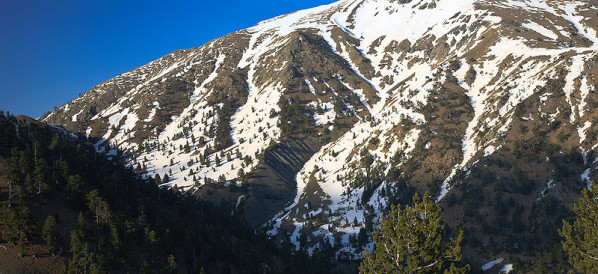 29 Terms
29 TermsHome > Terms > English (EN) > Islam
Islam
Muslims came to America as slaves in the early days of the Republic; later immigrants from the Middle East established permanent communities by the late nineteenth century Yet claims to an Islamic citizenship have been controverted by the continual dominance of a Judaeo-Christian civil tradition and the orientalist identification of Islam with distant and savage others, especially in the global political climate of the late twentieth and early twenty-first centuries. Moreover, the separatist claims of the Nation of Islam, promoting African American nationalism on the basis of a non-orthodox racial reinterpretation of Islam, have made the religion seem anti-American to many in the cauldron of the Civil Rights movement. Nonetheless, flourishing Muslim communities have sprung up throughout the US, bringing together established African and Arab Americans with diverse immigrants from South Asia, Africa, the Middle East and Albania. Like other immigrants, these Muslims confront the dilemmas of maintaining the rituals and practices of their religion in a diverse society as well as the intersection of very different interpretations and cultures of Islam. Still, 4–5 million Muslims live in the United States, but mosques remain unfamiliar and suspect landmarks. Islam is read more often as a symbol of fanaticism than as part of a religious dialogue within a polyglot discussion.
Moreover, Islam lacks the Hollywood conversion cachet of Buddhism: mass media have tended to separate rather than integrate Islamic practice and “Americanism.” Arab Americans established the first US mosques, especially in Midwestern cities, in the late nineteenth and early twentieth centuries. Communities generally remained small, incorporating Sunni, Shia, Alawis and Druze; the Federation of Islamic Associations acted as an umbrella group. An influx of Arab, Iranian and South Asian students and professionals after the Second World War expanded this community as a transnational faith.
Meanwhile, the Nation of Islam had claimed titles and symbols of Muslim orthodoxy (mosques, naming, etc.) since its foundation in the 1930s, although its messages and practices diverged from global traditions, as Malcolm X observed in his Autobiography (1965). This division shifted radically in 1975 when Warith Dean Muhammed, son of black Muslim leader Elijah Mohammed, pushed his group towards Sunni Islam and doubled the Muslim community in the US. The intersection of “Orthodox” Islam and Muslims coming out of African American traditions remains extremely complex, even if these groups are conflated in American imagery.
New immigration laws also facilitated even more diversity with the arrival of Muslims from Africa, Southeast Asia, China, the West Indies and other areas. These shifts have separated “Arab” (which also includes Christians) and “Muslim” as communities, although many Americans again confuse the two. In the early twenty-first century American Muslims, with over 1,000 mosques, are united by Islam, but divided by interpretations of Islam, language, origins, class, race, ethnicity and gender.
These diverse Muslims have confronted rejection as outsiders, as well as pressures towards assimilation and adaptation in the formation of American Islam. Limitations in observing Islamic law have been imposed by the small communities (absence of halal meat). Work and school settings and rules have failed to recognize ritual needs, although these have been changed through court action as well as increasing social recognition that, for example, limits academic exigencies during Ramadan. Even here, these questions are decided within American institutions (courts, agencies dealing with discrimination, universities, etc.) rather than Islamic forums.
Women have been seen as a particular crucible for Muslim identity in terms of both observance of rules and transmission of the faith to children, especially in the frequent absence of schools. Diversity complicates gender roles—some Muslim women may come from cultures or classes that have not experienced veiling (pre-revolutionary Iranians and contemporary North Africans), yet these same Muslims may be shocked by the lack of Koranic knowledge, behavior (smoking) or assimilation of other Muslims, including taking Christmas as a national holiday. Identification of Muslim women abroad as oppressed also makes it difficult for American Muslims to defend their freedom of life choices, much less present Islamic feminism as an alternative. In other cases, women have also taken on leadership roles in mosques and Muslim organizations beyond those they would occupy in other Islamic societies worldwide.
American Islam, despite its strengthened foundations and participation in American life, is profoundly affected by the transnational connections of geo-politics, immigrant ties and mass-media imagery Arab-Israeli conflicts, the Iranian Revolution, which cut off large communities of immigrants in areas like Los Angeles, the Gulf War, fundamentalist revivals and the specter of terrorism have identified Muslims to many Americans as enemies rather than potential or actual fellow citizens. Whether in theological dialogues, orientalist visions from Hollywood (Raiders of the Lost Ark, 1981; The Siege, 1999; The Mummy, 1999) or in everyday interactions among neighbors and colleagues, this distance imposes special burdens on those for whom Muslim and American are central identities.
- Part of Speech: noun
- Synonym(s):
- Blossary:
- Industry/Domain: Culture
- Category: American culture
- Company: Routledge
- Product:
- Acronym-Abbreviation:
Other Languages:
Member comments
Terms in the News
Billy Morgan
Sports; Snowboarding
The British snowboarder Billy Morgan has landed the sport’s first ever 1800 quadruple cork. The rider, who represented Great Britain in the 2014 Winter Olympics in Sochi, was in Livigno, Italy, when he achieved the man-oeuvre. It involves flipping four times, while body also spins with five complete rotations on a sideways or downward-facing axis. The trick ...
Marzieh Afkham
Broadcasting & receiving; News
Marzieh Afkham, who is the country’s first foreign ministry spokeswoman, will head a mission in east Asia, the state news agency reported. It is not clear to which country she will be posted as her appointment has yet to be announced officially. Afkham will only be the second female ambassador Iran has had. Under the last shah’s rule, Mehrangiz Dolatshahi, a ...
Weekly Packet
Language; Online services; Slang; Internet
Weekly Packet or "Paquete Semanal" as it is known in Cuba is a term used by Cubans to describe the information that is gathered from the internet outside of Cuba and saved onto hard drives to be transported into Cuba itself. Weekly Packets are then sold to Cuban's without internet access, allowing them to obtain information just days - and sometimes hours - after it ...
Asian Infrastructure Investment Bank (AIIB)
Banking; Investment banking
The Asian Infrastructure Investment Bank (AIIB) is an international financial institution established to address the need in Asia for infrastructure development. According to the Asian Development Bank, Asia needs $800 billion each year for roads, ports, power plants or other infrastructure projects before 2020. Originally proposed by China in 2013, a signing ...
Spartan
Online services; Internet
Spartan is the codename given to the new Microsoft Windows 10 browser that will replace Microsoft Windows Internet Explorer. The new browser will be built from the ground up and disregard any code from the IE platform. It has a new rendering engine that is built to be compatible with how the web is written today. The name Spartan is named after the ...
Featured Terms
Contributor
Featured blossaries
karel24
0
Terms
23
Blossaries
1
Followers
International Internet Slangs and Idioms
 29 Terms
29 TermsBrowers Terms By Category
- Zoological terms(611)
- Animal verbs(25)
Zoology(636) Terms
- General accounting(956)
- Auditing(714)
- Tax(314)
- Payroll(302)
- Property(1)
Accounting(2287) Terms
- Social media(480)
- Internet(195)
- Search engines(29)
- Online games(22)
- Ecommerce(21)
- SEO(8)
Online services(770) Terms
- General art history(577)
- Visual arts(575)
- Renaissance(22)
Art history(1174) Terms
- Architecture(556)
- Interior design(194)
- Graphic design(194)
- Landscape design(94)
- Industrial design(20)
- Application design(17)




